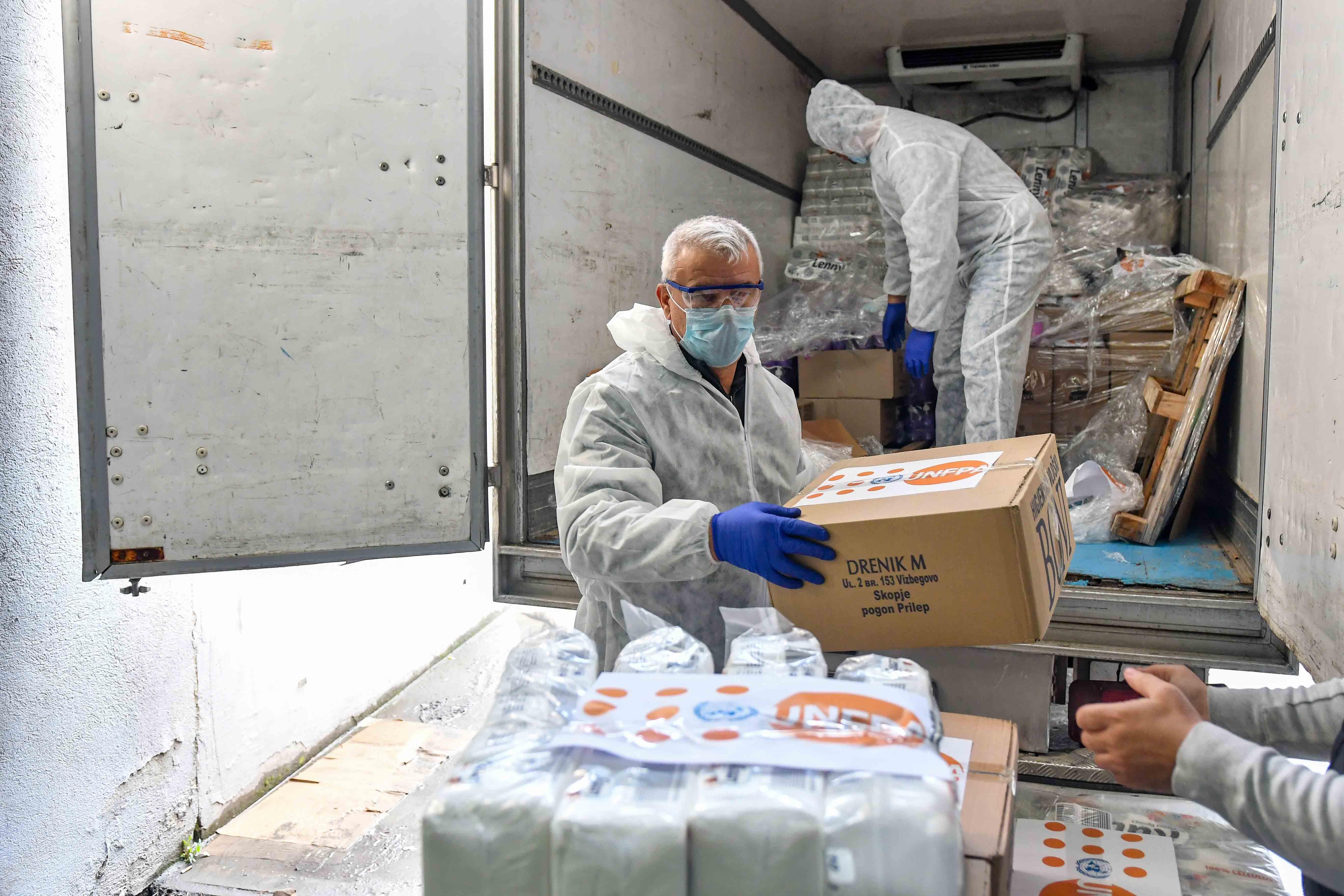Skopje, North Macedonia - Today, the UNFPA Office in North Macedonia made a donation in hygiene products aiming at helping women, pregnant women and the elderly, in response to the COVID-19 pandemic needs defined by the state health institutions.
The donation, comprised of 2.800 hygiene product pieces, was delivered to the Public Health Institutions in Skopje – the University Clinic for Infectious Diseases and Febrile Conditions, the University Clinic for Gynaecology and Obstetrics and the Special Hospital for Gynaecology and Obstetrics - Chair.

UNFPA MK Covid-19 response for women, pregnant women and the elderly. Photo: Tomislav Georgiev/UNFPA MK
Hygiene kits are intended for the purposes of these public health institutions in order to prevent the spread of COVID-19, especially for women, pregnant women, and the elderly. The hygienic kits aid consists of liquid hand soap, hair / body shampoo, hand sanitizer, antibacterial wipes, self-adhesive cycle pads, adult diapers, and toilet paper.
“This initial donation is one of the responses of UNFPA to combat Covid-19. Tomorrow we are delivering another donation for infected people with Covid-19 in Debar and Centar Zhupa municipalities”, says Afrodita Shalja, UNFPA North Macedonia Head of Office. She adds that CO efforts will focus on ensuring access to sexual and reproductive health and gender-based violence services, as well as other needs of the most vulnerable groups.
UNFPA’s priorities in Covid-19 response, on the ground, are: Ensuring women and girls have access to modern contraception (if they want it), can give birth safely, and gender-based violence survivors receive support; Strengthening health systems; Ensuring (as far as is possible) essential supplies are bought and delivered without interruption and Helping people and communities communicate about how to reduce the risks contracting COVID-19.

The donation consisted of 2.800 hygiene product pieces for the most vulnerable. Photo: Tomislav Georgiev/UNFPA MK
UNFPA is working closely with governments, WHO, other agencies working on health, and national partners to ensure that accurate information is provided to women, including those of reproductive age and pregnant women, on infection prevention, potential risks and how to seek timely medical care, as well as protection from gender based violence.


